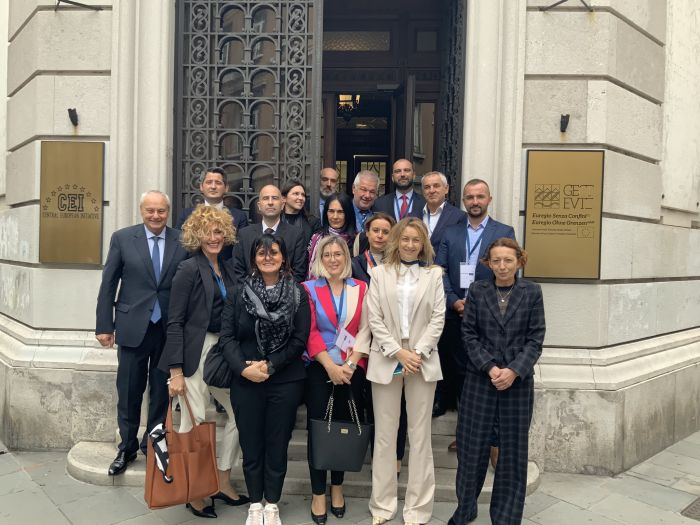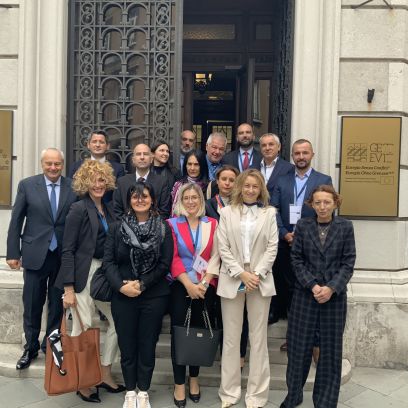On 8 October, Ministers, State Secretaries and other high officials dealing with environmental issues in CEI countries gathered in Trieste for a Conference organised within the Sea Summit hosted by the world-renowned regatta, the “Barcolana”.
“Waste Management” and “Waters without Borders” were the themes of this event held under the Montenegrin Presidency.
The two interlinked sessions opened both by Montenegro’s Minister Ratko Mitrovic and by CEI Secretary General Roberto Antonione focused on the key policies linked to these topics and on pinpointing new cooperation avenues, strategies and joint actions for sustainability in terms of post-Covid Recovery and to contribute to meeting the UN Agenda 2030’s Sustainable Development Goals.
In view of long-term actions to address these pressing issues, the Session on Waste Management was concluded with a Joint Statement on Cooperation in the field of Sustainable Waste Management in the CEI region. In this regard, Mitrovic recognised that its elaboration needed a multilateral and inclusive approach, guided by solidarity and a shared vision, especially given the very nature of the burning environmental challenges that transcend national borders; and that regional cooperation was needed more than ever, ‘not only in small, but also in large countries, and not only in terms of preventing waste production but also in using it as a potential resource, with the application of the most modern technologies.’
Minister Mitrovic highlighted that his country sought to systematically integrate environmental issues into all sectors and decision-making processes, as well as to invest in the latest technologies for effective pollution prevention, waste reduction and environmental risks, with the ultimate goal of establishing a good circular economy system.
In this context, SG Antonione pointed out that waste management was to be considered as a building block of our future circular economy and that the document represented an agreed policy framework drafted by bearing in mind that sustainability was pivotal for all the areas of cooperation of the Organisation, i.e.social, economic and environmental - fully aligned with those included in the UN 2030 Agenda and its SDGs. He added that the CEI - in its capacity as a regional organisation - could play a valuable role in facilitating and supporting these processes through its experience in promoting the circulation of knowledge, best-practice exchange and design and implementation of transnational and cross-border projects.
The Session Waters without Borders, which focused on sharing best practices and at stimulating cooperation and joint actions in the field of water protection, perfectly represented the CEI mission aimed at facilitating the establishment of regional partnerships able to address common challenges. And the “environmental protection of water, and its sustainable management is certainly one of the most pressing topics for the Member States of our organisation” said Antonione, “since water is borderless by definition, such complex challenges can only be faced together”.
The event was complemented with the presentation of the students of the Friuli Venezia Giulia Region who were among the winners of the first edition of Call for Ideas “Active young citizen for sustainable development”, namely the students of the Istituto Tecnico Economico Mattei of Latisana and of the Liceo Petrarcaof Trieste awarded by the FVG Region and by the Fondazione Cassa di Risparmio of Trieste. They provided a descritption of their projects focused on the monitoring, safeguarding and enhancing of two natural eco-systems at risk, namely lagoons and the Karst.
Antonione concluded by informing on the recent launch of the second edition of the call entitled “IMAGINE”.
For more info: arsova@cei.int


